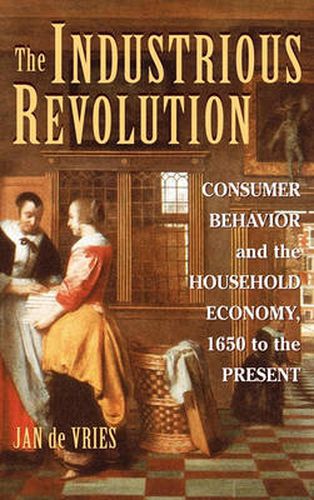Readings Newsletter
Become a Readings Member to make your shopping experience even easier.
Sign in or sign up for free!
You’re not far away from qualifying for FREE standard shipping within Australia
You’ve qualified for FREE standard shipping within Australia
The cart is loading…






In the long eighteenth century, new consumer aspirations combined with a new industrious behavior to fundamentally alter the material cultures of northwest Europe and North America. This ‘industrious revolution’ is the context in which the economic acceleration associated with the Industrial Revolution took shape. This study explores the intellectual understanding of the new importance of consumer goods as well as the actual consumer behavior of households of all income levels. De Vries examines how the activation and evolution of consumer demand shaped the course of economic development, situating consumer behavior in the context of the household economy. He considers the changing consumption goals of households from the seventeenth century to the present and analyzes how household decisions have mediated between macro-level economic growth and actual human betterment. Ultimately, de Vries’ research reveals the strengths and weaknesses of existing consumer theory, suggesting revisions that add historical realism to economic abstractions.
$9.00 standard shipping within Australia
FREE standard shipping within Australia for orders over $100.00
Express & International shipping calculated at checkout
In the long eighteenth century, new consumer aspirations combined with a new industrious behavior to fundamentally alter the material cultures of northwest Europe and North America. This ‘industrious revolution’ is the context in which the economic acceleration associated with the Industrial Revolution took shape. This study explores the intellectual understanding of the new importance of consumer goods as well as the actual consumer behavior of households of all income levels. De Vries examines how the activation and evolution of consumer demand shaped the course of economic development, situating consumer behavior in the context of the household economy. He considers the changing consumption goals of households from the seventeenth century to the present and analyzes how household decisions have mediated between macro-level economic growth and actual human betterment. Ultimately, de Vries’ research reveals the strengths and weaknesses of existing consumer theory, suggesting revisions that add historical realism to economic abstractions.